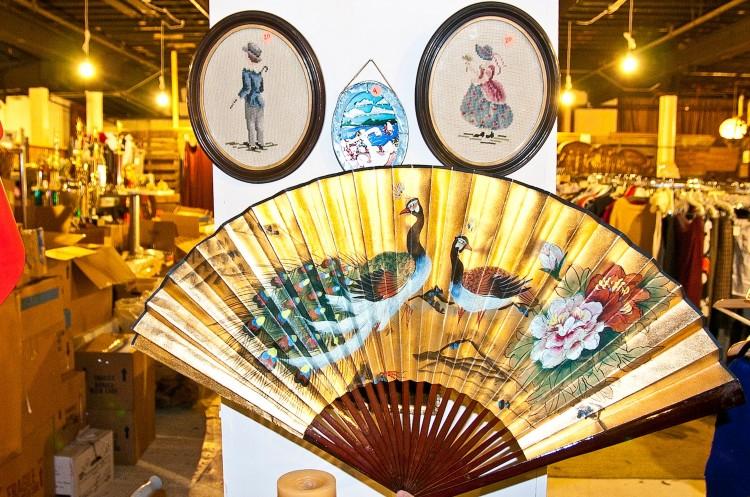NEW YORK—Looking for vintage Koss headphones, construction rubble, or a lifeguard backboard?
Head to Film Biz Recycling (FBR) in Gowanus, Brooklyn, and explore the non-profit’s 10,000 square foot warehouse filled with items for rent or purchase that are donated from film shoots, television commercials, and theater productions.
The organization was conceived by Eva Radke after 15 years in the film business, and diverts expensive items from being thrown away.
“I saw that there was this underbelly, and an unconscionable amount of waste,” said Radke, who is founder and president.
Donations recently arrived from the movies “New Year’s Eve,” “Extremely Loud and Incredibly Close,” “Mr. Popper’s Penguins,” and “Gods Behaving Badly.” Past donations have come from “Law & Order,” “30 Rock,” “Gossip Girl,” and television commercials.
Since opening in 2008, says a year-end post on their website, FBR has diverted more than 96 tons of material from 122 films, 53 television shows, 98 commercials, and nine stage productions.
The skills Radke accumulated over 15 years in the industry—dealing with “very strict deadlines” and having “no room for error”—helped prepare her for running FBR.
“Being an insider, too, really helps,” she added.
“I’m a natural connector,” she said, motioning to a pillow. “I know who’s going to find the most value in this pillow. And there are some things that are just good for film here.”
One example is the construction rubble—which is actually made out of foam—or old newspaper boxes, “Things that we know they’re [film productions] always looking for.”
Giving Leads to Growth







